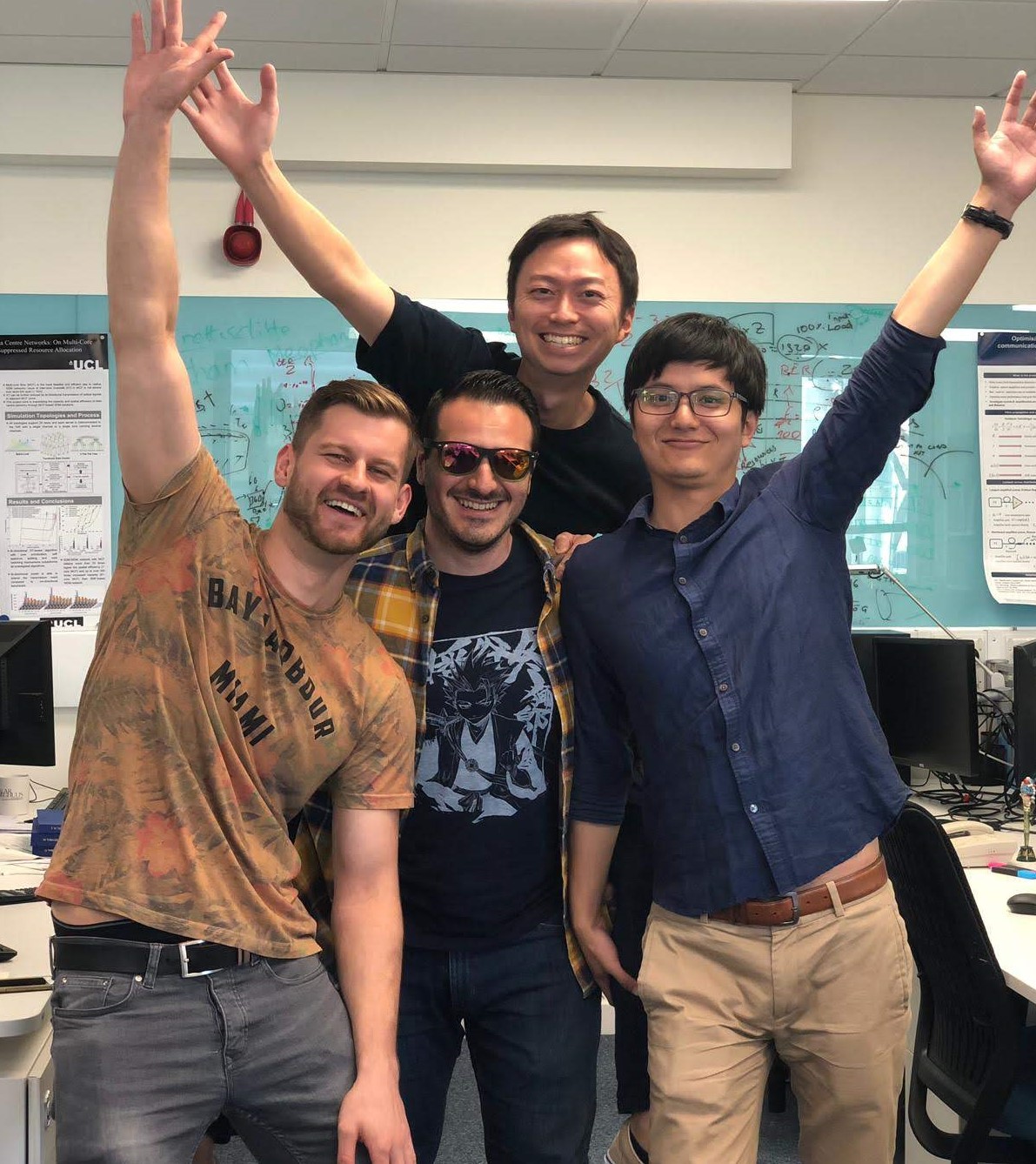Reflections on PhD life with Tom Gerard – Part 1
As we come towards the end of a hugely challenging year, we would like to share the thoughts, experiences and achievements of our wonderful research students in a series of blog posts. Welcome to the opening piece!
Tom Gerard, a final year student from our UCL site, tells us why collaboration is the best and remembers how an experience very early into his PhD left him feeling daunted and bewildered about what lay ahead.
This is the first installment of a two-part interview with Tom.
 What are your PhD highlights and why?
What are your PhD highlights and why?
The best moments of my PhD were all based around collaboration and engagement – attending international conferences, working with visiting academics, touring the laboratories of other groups, interning with Microsoft Research, and so on. These events demonstrated to me that the days of solo PhD work are over, and that the best (and most fun!) contributions come from collaborating with others and working as a team.
A wonderful example of this was the last days of Dr Yuta Wakayama’s stay with us at the Optical Networks Group (our UCL site), who was visiting from KDDI Japan (an industry partner of TRANSNET). After a week of intense lab work combining Yuta’s programming experience with our laboratory skills, we had a group picnic with football in the park and a dip in the Hampstead Heath ponds. This tight fit of international collaboration, cutting-edge research, socialising in the group and engaging in cultural activities was amazing fun and totally typical of life within the Optical Networks Group.
What’s been the most challenging part of your PhD and why?
And the most rewarding?
One of the most challenging moments of my PhD was my very first group meeting. On my first Monday morning I sat down with the team in the meeting room, bright eyed and bushy tailed. The room was packed with almost 30 people, and Prof Bayvel asked Gabriele Liga to give an update on the ongoing experiment. Gabriele looked around the room and said: “I can see we have a few new faces so I’ll give a brief introduction to put the work in context.”
I smiled, relieved, as he continued: “We are investigating DSP for WRONs using SSMF and EDFAs in DWDM scenarios. We know LMS and CMA methods can recover AWGN signals, but here we investigate their limitations with QPSK and M-QAM formats inflicted with PAPR impairments from the DAC and ADC, especially when using DBP…” and he went on like that for 30 minutes.
It was a foreign language; I looked around, but nobody else seemed fazed. Eventually the meeting finished, and I came out completely demoralised. I thought I had made an enormous mistake – how could I ever become an expert in this field, when I could not even understand information as it was presented to me? What possible contribution could I ever make that was on the level targeted by these researchers? How on earth can these guys know so much?
Those feelings came and went throughout the PhD, but it helped when I found out that similar crises of confidence and self-worth are experienced by many (all?) researchers. A key highlight of the PhD was the flip side of this experience.
Just a few months ago, I was helping four Master’s students with their final experiment in the lab. The questions came thick and fast: “How can we measure this? What’s the theory behind that? Why is this effect happening? Where can we find more of these?” I helped where I could, knowing that others had done the same for me years ago, until the last question came:
“Tom, how can you know so much?”
The question surprised me because I had never taken the chance to reflect on how far I had come since that first group meeting. Working with the students gave me perspective on my own progression, and it was a rewarding opportunity to pass on some of that knowledge.
In part two, we learn about Tom’s future plans and how the Covid-19 pandemic impacted his PhD.
Tom joined the Optical Networks Group at UCL as an MPhil/PhD student in October 2016 with funding from Microsoft Research. His thesis title is ‘Optical Switching for Scalable Data Centre Networks’ under the supervision of Professor Polina Bayvel. Tom has been a member of the TRANSNET Programme since 2018.